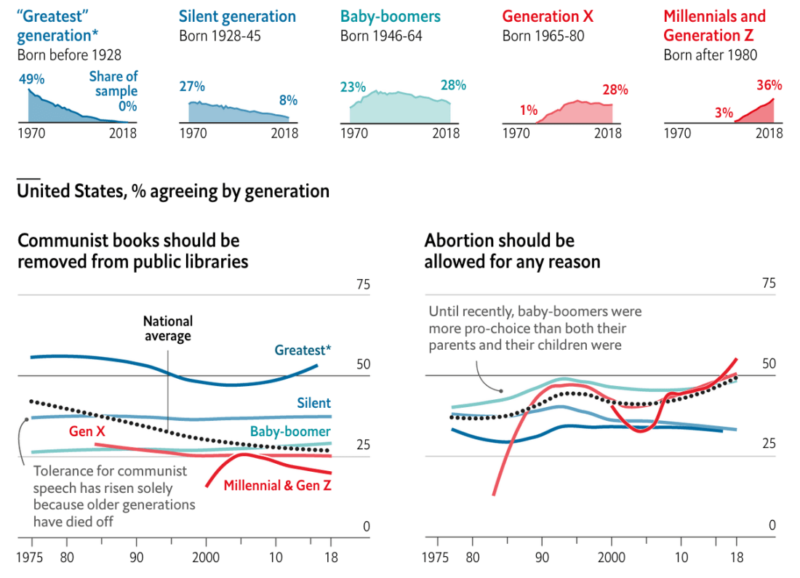If I could summarise the next decade: it will be ten years of very interesting times. Of difficult, complex systems problems that will demand deeper thinking, more reading, nuanced approaches.
Origen: 
My suggestions for the shape of the next decade are based on what I consider a roughly optimistic reading of those choices. I’d welcome your comments, particularly from members, below.
- Climate change will be the dominant narrative.
- Our geopolitics will continue to fragment and this will result in more conflict.
- In what we have generally thought of as the West, we’ll rethink the shape and purpose of our economies.
- We’ll see the rise of new digital commons, economic institutions that are neither public- nor private- sector.
- World trade will face a troika of headwinds.
- Cities will become relatively more important.
- We’ll eat far less meat.
- The big tech companies, particularly Facebook, Google and Amazon, will work aggressively to increase their footprint
- AI will be everywhere
- During the 2020s there will be a generational shift.As The Economistpointed out, ‘generational replacement is what shifts public opinion.’

What didn’t I talk about in the ten points above?
I couldn’t speak about the change in the nature of science, how the combination of computation, better search algorithms and data allows for a new type of empirically driven discovery and could herald a new age of rapid scientific discovery. I didn’t get a chance to talk about the potential for blockchain to enable new types of decentralised apps, or the increasing use of state-backed and independent cryptocurrencies. Nor did we speak about the scale of disruption that will hit incumbent firms in sectors beyond media and retail, but reaching deep into finance, transport, energy and beyond. And thus, concomitantly, the opportunity for entrepreneurs to craft new propositions.
I also didn’t have a chance to really zero in on what the new rules and norms of the coming exponential age need to be. In the face of all-seeing algorithmic systems, how we need to rethink the nature and extent of individual rights and the processes by which we protect them. Or what our intellectual property laws should look like as our economies continue their rapid shift towards intangible rather than tangible assets. As work shifts away from the bundle of full-time employment and a welfare net, a new, post-Fordist bundle will be required—I didn’t discuss this in my predictions (but you can hear a great conversation about it here.) Nor did I say much about the nature of identity-driven politics vs. cosmopolitanism, although I reckon that the underlying technologies favour homophily rather than integration.
I didn’t talk about inequality. I expect that globally fiscal policies will move to roughly tackle economic inequality. However the rapid rate of innovation will mean that improved products and services will be made available at a faster rate to those capable of paying. Some of those services, particularly those relating to healthcare (and genomics), education, and wealth management, will allow the very well-positioned to cement structural advantages across generations well beyond any increases in their tax burden.
At more than 2,400 words, I feel like I’ve gone on for long enough. If I could summarise the next decade: it will be ten years of very interesting times. Of difficult, complex systems problems that will demand deeper thinking, more reading, nuanced approaches. We’ll need to stand up against agnotological cynicism and simplism, both of which anaesthetise our human capacities. I hope we will be able to!
